
Find Help
More Items From Ergsy search
-

What can low levels of cortisol cause?
Relevance: 100%
-

Can cortisol levels be measured?
Relevance: 81%
-

Can diet influence cortisol levels?
Relevance: 75%
-
Can cortisol levels impact mood and mental health?
Relevance: 72%
-

Can exercise influence cortisol levels?
Relevance: 71%
-

What can high levels of cortisol cause?
Relevance: 69%
-
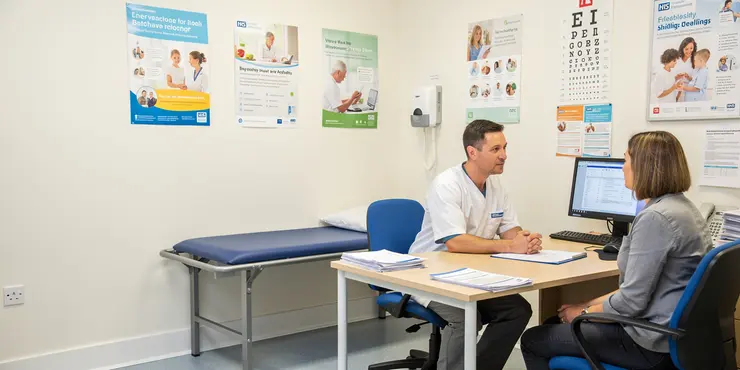
What factors can influence cortisol levels?
Relevance: 68%
-

What is cortisol?
Relevance: 67%
-

How do cortisol levels differ between acute and chronic stress?
Relevance: 67%
-

How can stress management affect cortisol levels?
Relevance: 65%
-

Are there any lifestyle changes that can help regulate cortisol levels?
Relevance: 63%
-

Is there a connection between cortisol and the immune system?
Relevance: 60%
-
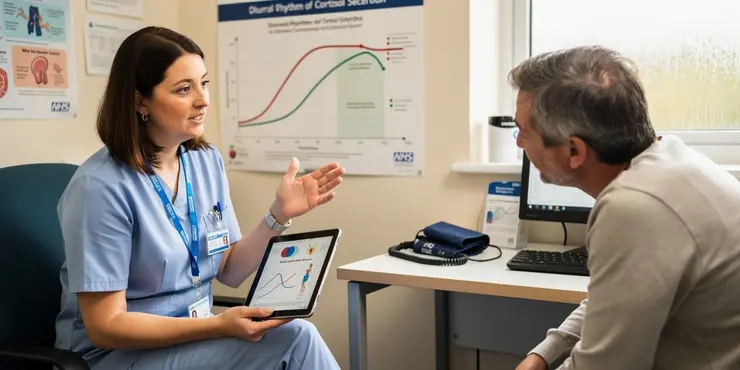
What is the normal pattern of cortisol secretion throughout the day?
Relevance: 59%
-

What is the role of cortisol in metabolism?
Relevance: 57%
-

How does cortisol affect the body's stress response?
Relevance: 57%
-

How is cortisol regulated in the body?
Relevance: 56%
-

What role does cortisol play in the body?
Relevance: 56%
-

What is the relationship between cortisol and the circadian rhythm?
Relevance: 50%
-
Can low salt intake be harmful?
Relevance: 38%
-
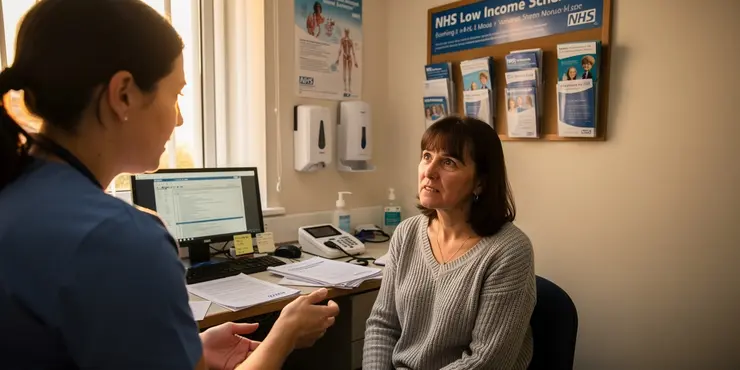
What is the NHS Low Income Scheme?
Relevance: 37%
-

What is the NHS Low Income Scheme?
Relevance: 35%
-

What is NHS Low Income Scheme?
Relevance: 35%
-

Can Ozempic cause low blood sugar (hypoglycemia)?
Relevance: 35%
-

Who is eligible for the NHS Low Income Scheme?
Relevance: 33%
-

What are PSA levels? - Prostate Cancer
Relevance: 32%
-

How do I apply for the NHS Low Income Scheme?
Relevance: 31%
-

Who is eligible for the NHS Low Income Scheme?
Relevance: 31%
-
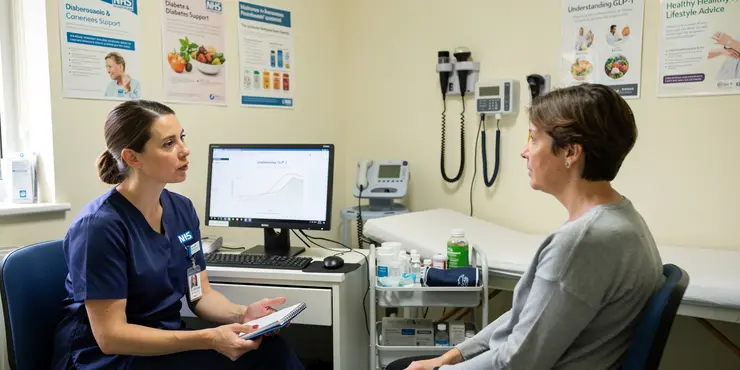
Can GLP-1 levels be measured?
Relevance: 30%
-

Why is reducing aldosterone levels important?
Relevance: 30%
-

How does Abiraterone affect hormone levels?
Relevance: 30%
-
Does drinking orange juice affect blood sugar levels?
Relevance: 29%
-

Do all pregnancy tests detect the same levels of hCG?
Relevance: 29%
-

What is the importance of PSA levels in treatment?
Relevance: 28%
-

Can fiber help lower cholesterol levels?
Relevance: 27%
-

Evidence-Based Interventions: injections for non-specific low back pain without sciatica
Relevance: 27%
-

Diabetes: How to check your blood glucose level | NHS
Relevance: 26%
-
Are there any populations with high seed oil usage and low disease rates?
Relevance: 26%
-

What is Cushing's syndrome?
Relevance: 25%
-
How does sugar affect my energy levels?
Relevance: 24%
-
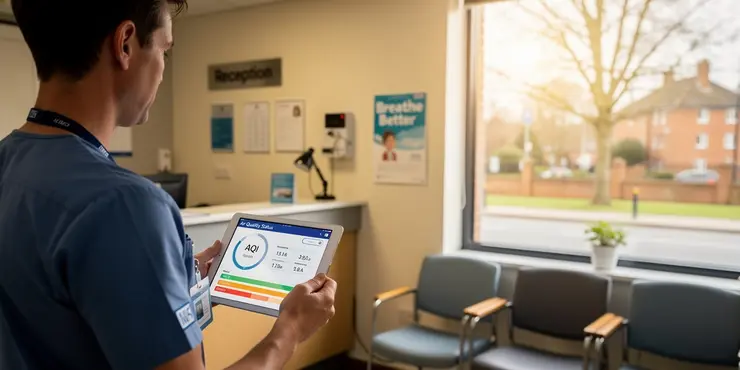
How do I check current air quality levels in my local area?
Relevance: 24%
Understanding Cortisol
Cortisol is a hormone produced by the adrenal glands, which are located on top of each kidney. Classified as a glucocorticoid hormone, cortisol plays a crucial role in many bodily functions. It is often referred to as the "stress hormone," as it is released in greater amounts during the body's 'fight or flight' response. However, cortisol is vital for other systems as well, including metabolism, immune response regulation, and helping the body respond to stress.
Symptoms of Low Cortisol Levels
Low levels of cortisol, a condition also known as hypocortisolism or Addison's disease when chronic, can lead to a host of symptoms. Individuals with low cortisol levels may experience continual fatigue, muscle weakness, and weight loss. These symptoms occur because cortisol helps regulate the metabolism of proteins, carbohydrates, and fats. Thus, inadequate cortisol production can confuse these metabolic processes, leading to energy depletion and muscle deterioration.
People with low cortisol levels may also face gastrointestinal symptoms such as nausea, vomiting, and abdominal pain. Cortisol deficiency affects the digestive system, sometimes leading to discomfort and difficulties in processing food.
Impacts of Low Cortisol on Physical Health
In individuals with low cortisol, blood pressure typically decreases, which can lead to dizziness and fainting. Cortisol has a significant impact on cardiovascular function, and insufficient levels can impair the body's ability to maintain stable blood pressure. Furthermore, those with low cortisol might experience low blood sugar levels, known as hypoglycemia. This is particularly dangerous for those with diabetes, as it can lead to severe complications if not carefully managed.
Mental Health and Cortisol Deficiency
Low cortisol does not only affect physical health but mental health as well. Individuals suffering from low cortisol levels might experience mood swings, depression, or irritability. This hormone is crucial for normal brain function, and inadequate levels can alter mood and mental clarity. Anxiety might also increase, exacerbated by feelings of lethargy and decreased overall well-being.
Adrenal Insufficiency Treatments
Diagnosing and managing low cortisol levels requires medical intervention. Physicians typically conduct blood tests to measure cortisol levels and may prescribe glucocorticoid medications to replace insufficient hormone levels. It's essential for individuals with symptoms of low cortisol to seek medical advice, as early detection and treatment can prevent potentially life-threatening complications.
In the UK, the NHS provides resources and support for those dealing with adrenal insufficiency. Regular follow-ups and proper management of the condition can help individuals maintain a normal lifestyle, minimise symptoms, and prevent crises related to low cortisol levels.
What is Cortisol?
Cortisol is a chemical made by small glands that sit on top of your kidneys. It is sometimes called the "stress hormone" because your body makes more cortisol when you are stressed. Cortisol helps your body with many things like using food for energy, fighting off germs, and dealing with stress.
Signs of Low Cortisol
When your body has low cortisol, you might feel very tired, have weak muscles, and lose weight without trying. This happens because cortisol helps your body get energy from food. If you don’t have enough cortisol, your body gets confused and you feel very tired.
You might also feel sick to your stomach and have stomach aches. These problems happen because cortisol helps your stomach work well, and without it, your stomach can hurt and not work right.
How Low Cortisol Affects Your Body
If you have low cortisol, your blood pressure can drop, making you feel dizzy or faint. Cortisol is important to keep your heart and blood healthy. Without enough cortisol, your blood and sugar levels can drop, which can be dangerous, especially if you have diabetes.
How Low Cortisol Affects Your Mood
Low cortisol can also make you feel sad or grumpy. Cortisol is important for your brain. If your body doesn't make enough of it, you might feel very moody or anxious.
Treatment for Low Cortisol
If you think you have low cortisol, you should see a doctor. Doctors can do a blood test to check your cortisol levels. If your levels are low, they might give you medicine to help. It is very important to talk to a doctor early if you have symptoms, to avoid problems.
In the UK, the NHS can help people with this problem. They can give you advice, check-ups, and support to help you feel better and stay healthy.
Frequently Asked Questions
What are general symptoms of low cortisol levels?
General symptoms of low cortisol levels include fatigue, weakness, weight loss, and low blood pressure.
Can low cortisol levels affect energy levels?
Yes, low cortisol levels can lead to chronic fatigue and a notable decrease in energy levels.
What is the relationship between low cortisol and mood changes?
Low cortisol levels can cause mood swings, irritability, and depression.
How does low cortisol affect blood pressure?
Low cortisol levels can lead to low blood pressure, which might cause dizziness and lightheadedness.
Can low cortisol lead to weight changes?
Yes, low cortisol levels can cause weight loss due to appetite changes and issues with metabolism.
Are there any gastrointestinal symptoms associated with low cortisol?
Yes, low cortisol levels can cause nausea, vomiting, diarrhea, and abdominal pain.
Can low cortisol levels affect the immune system?
Low cortisol levels can weaken the immune system, making a person more susceptible to infections.
Do low cortisol levels impact the body's response to stress?
Yes, low cortisol levels impair the body's ability to handle stress effectively.
What are some potential causes of low cortisol levels?
Low cortisol levels can be caused by adrenal insufficiency, such as Addison's disease, or by dysfunction of the pituitary gland.
Can low cortisol levels lead to hypoglycemia?
Yes, low cortisol levels can cause low blood sugar (hypoglycemia) due to impaired glucose production.
Is there a link between low cortisol levels and skin changes?
Yes, individuals with low cortisol levels might experience hyperpigmentation or darkening of the skin.
How do low cortisol levels affect muscle function?
Low cortisol levels can lead to muscle weakness and even muscle pain.
What are some cognitive effects of low cortisol levels?
Low cortisol levels can affect cognitive function, leading to decreased concentration and memory issues.
Can low cortisol levels cause changes in salt cravings?
Yes, individuals with low cortisol levels might experience increased salt cravings.
Is there a connection between low cortisol levels and mental health?
Low cortisol levels are associated with anxiety and depression due to hormonal imbalance.
What tests are used to diagnose low cortisol levels?
Blood tests measuring cortisol levels, ACTH stimulation tests, and saliva or urine tests are used to diagnose low cortisol levels.
Can low cortisol levels be treated?
Yes, low cortisol levels can be treated with hormone replacement therapy, lifestyle changes, and managing stress.
What lifestyle changes can help manage low cortisol levels?
Adequate rest, a balanced diet, stress management, and regular exercise can help manage low cortisol levels.
How does dehydration relate to low cortisol levels?
Low cortisol levels can affect fluid and electrolyte balance, potentially leading to dehydration.
What is adrenal insufficiency and how is it related to low cortisol levels?
Adrenal insufficiency is a condition where the adrenal glands do not produce enough cortisol, leading to low cortisol levels.
What happens when your body has low cortisol?
Cortisol is a chemical in your body. It helps you feel good and strong.
If you have low cortisol, you might feel tired, weak, or sad. Your body might hurt, and your stomach might feel funny.
Using picture cards or asking a helper can make it easier to understand these feelings.
If you have low cortisol levels, you might feel tired and weak. You could also lose weight and have low blood pressure.
Do low cortisol levels make you feel tired?
Yes, having low cortisol can make you really tired all the time. It can also make you feel like you have no energy.
How does low cortisol affect how people feel?
Cortisol is a chemical in your body. It helps you feel good and gives you energy. Sometimes, if there is not enough cortisol in your body, it can make you feel sad or tired.
If you or someone you know has low energy or feels sad a lot, it might be because of low cortisol. It is a good idea to talk to a doctor about it.
Reading tools and helpful friends can help you understand this topic better.
Having low levels of cortisol can make you feel different emotions. You might feel happy, then sad. You could get upset easily or feel very down.
How does low cortisol change blood pressure?
Cortisol is a hormone made by your body. It helps control blood pressure. When there is not enough cortisol, blood pressure can get too low.
Low blood pressure can make you feel dizzy or weak. You might need to talk to a doctor if you feel like this.
If you have trouble reading, try using tools that read text out loud. This can help you understand better.
When your body has low cortisol, it can make your blood pressure go low. This might make you feel dizzy and like your head is spinning.
Can low cortisol make you gain or lose weight?
Yes, when your body has low cortisol, it can make you lose weight. This is because it can change how hungry you feel and how your body uses food for energy.
Can low cortisol cause tummy problems?
Yes, having low levels of cortisol can make you feel sick. You might throw up, have a runny tummy, or have a sore belly.
Can low cortisol levels affect the immune system?
The immune system helps protect the body from getting sick. Cortisol is a hormone in the body that can help control stress. It can also help the immune system work properly.
When cortisol levels are low, it might change how well the immune system works. This means the body might not fight off germs as well as it should.
If someone is worried about low cortisol levels, they should talk to a doctor. A doctor can help check hormone levels and suggest if any treatment is needed.
People can also try to take care of their immune system by eating healthy foods, getting enough sleep, and exercising. Relaxation techniques like deep breathing or gentle yoga might help reduce stress too.
When your body doesn't have enough cortisol, it can make it harder for you to fight off sicknesses. This means you can get sick more easily.
Do low cortisol levels change how our body deals with stress?
Cortisol is a hormone that helps our body handle stress. If someone has low cortisol, it might change how their body deals with stress. When you have stress, your body needs enough cortisol to help you calm down.
If you think low cortisol affects you, talk to a doctor for advice. They can help you understand your body better.
Using pictures and simple videos can help you learn more about cortisol and stress. Ask someone to read with you if you need help.
Yes, low cortisol levels make it hard for the body to handle stress well.
What can cause low cortisol levels?
Here are some reasons why cortisol levels might be low:
- Problems with the adrenal glands that make cortisol.
- Not enough signals from the brain to tell the adrenal glands to make cortisol.
- Some medicines can make cortisol levels go down.
- Being very stressed for a long time can change cortisol levels.
You can use tools like audio books or apps that read aloud to help understand more.
Sometimes, your body does not have enough cortisol. This can happen if your adrenal glands are not working well. One problem called Addison's disease can cause this. Another reason is if a small part of your brain, called the pituitary gland, is not working right.
To understand better, you can use pictures or watch videos. You can also ask a teacher or doctor to explain.
Can low cortisol make your blood sugar too low?
Yes, low cortisol can make blood sugar go low. This is because cortisol helps the body make sugar.
Do low cortisol levels affect your skin?
Sometimes having low levels of a hormone called cortisol might change your skin.
Using simple words can help you understand this better.
You can use tools like pictures or charts to make it easier.
Yes, people with low levels of cortisol might see their skin getting darker.
What happens to muscles when cortisol levels are low?
Cortisol is a hormone that helps our bodies work properly. When cortisol levels are low, it can affect our muscles.
If cortisol is too low, muscles might feel weak or tired. This can make it hard to do activities like running or lifting things.
To help, try eating healthy foods, getting enough sleep, and talking to a doctor. They can check your hormone levels.
Low cortisol levels can make your muscles feel weak. It can also cause muscle pain.
How can low cortisol affect the brain?
Low cortisol means there is not enough of a chemical called cortisol in your body. This can change how your brain works.
Here are some ways low cortisol can affect your brain:
- It can make it hard to think clearly.
- It can make you forget things easily.
- It can make you feel confused.
- It can make you feel tired.
If you find it hard to read, you can ask someone you trust to help you or use text-to-speech tools to read it aloud. Sometimes drawing pictures can help you understand better.
When cortisol levels are low, it can make it hard to think clearly. This might affect your ability to focus and remember things.
Here are some things you can try to help:
- Use pictures to help remember.
- Write down important stuff.
- Take breaks when you are tired.
- Try to do one thing at a time.
These tools can make it easier to concentrate and remember.
Can low cortisol levels make you want more salty food?
Yes, people with low cortisol might want to eat more salty foods.
Do low cortisol levels affect how we feel?
Our bodies make something called cortisol. It helps us feel strong and deal with stress. When cortisol levels are low, it can make us feel sad or worried.
If you are feeling like this, it's a good idea to talk to a doctor or someone who helps with feelings, like a therapist.
Some tools that might help are:
- Relaxing exercises, like deep breathing.
- Activities that make you happy, like drawing or listening to music.
- Talking to a friend or family member about how you feel.
When our bodies don't make enough cortisol, it can make us feel worried or sad. This is because our hormones are not in balance.
How do doctors check for low cortisol levels?
Doctors use tests to see if your body makes enough cortisol. Cortisol is a hormone that helps the body in many ways. Here are some tests doctors might use:
- Blood test: A blood test checks the cortisol level in your blood. It helps find out if you have enough cortisol.
- Urine test: A urine test collects your pee over 24 hours. It shows how much cortisol your body makes in a day.
- Saliva test: A saliva test uses your spit to check cortisol levels. It can show changes in cortisol levels at different times of the day.
If you find some words hard, you can ask someone to explain. You can also use tools like a dictionary or a text reader that reads aloud the words for you.
Doctors can use different tests to find out if you have low cortisol. They might do a blood test or check a sample of your spit or pee.
Can low cortisol levels be fixed?
Yes, you can fix low cortisol levels. Here are some ways to help:
- Visit a doctor. They can tell you what is best.
- Take medicine if the doctor says so.
- Eat healthy food.
- Get enough sleep.
- Exercise regularly.
If you find reading difficult, you can use tools like audiobooks or apps that read text out loud.
Yes, you can help low cortisol levels by taking special medicine, changing your daily habits, and doing things to help you feel less stressed.
What can you do to help with low cortisol levels?
If you have low cortisol levels, there are things you can do to feel better.
Here are some simple steps you can take:
- Eat a balanced diet: Try to eat fruits, vegetables, and proteins like chicken and fish. These foods can help your body.
- Get enough sleep: Go to bed and wake up at the same time every day to help your body rest.
- Exercise regularly: Move your body by going for a walk or playing a sport. This helps you feel good.
- Reduce stress: Try to relax by listening to music or drawing. Take deep breaths if you feel worried.
- Ask for help: Talk to a doctor or a trusted adult if you don't feel better.
Remember, it's important to take care of yourself. These small changes can make a big difference!
To help with low cortisol levels, it is good to get enough sleep, eat healthy food, manage stress, and exercise regularly.
How does not drinking enough water affect low cortisol levels?
When the body's cortisol levels are low, it can make it hard to keep the right balance of water and salts in the body. This can cause a person to lose too much water and become dehydrated.
What is adrenal insufficiency and how is it related to low cortisol levels?
Adrenal insufficiency is when your body makes less of a hormone called cortisol.
Cortisol helps your body handle stress and keeps you healthy.
If you have low cortisol, you might feel tired or weak.
To learn more, you can talk to a doctor or read simple health books.
Adrenal insufficiency is a health issue. It happens when adrenal glands don't make enough cortisol. This causes the cortisol levels in the body to be low.
Useful Links
This website offers general information and is not a substitute for professional advice.
Always seek guidance from qualified professionals.
If you have any medical concerns or need urgent help, contact a healthcare professional or emergency services immediately.
Some of this content was generated with AI assistance. We’ve done our best to keep it accurate, helpful, and human-friendly.
- Ergsy carfully checks the information in the videos we provide here.
- Videos shown by Youtube after a video has completed, have NOT been reviewed by ERGSY.
- To view, click the arrow in centre of video.
- Most of the videos you find here will have subtitles and/or closed captions available.
- You may need to turn these on, and choose your preferred language.
- Go to the video you'd like to watch.
- If closed captions (CC) are available, settings will be visible on the bottom right of the video player.
- To turn on Captions, click settings .
- To turn off Captions, click settings again.
More Items From Ergsy search
-

What can low levels of cortisol cause?
Relevance: 100%
-

Can cortisol levels be measured?
Relevance: 81%
-

Can diet influence cortisol levels?
Relevance: 75%
-
Can cortisol levels impact mood and mental health?
Relevance: 72%
-

Can exercise influence cortisol levels?
Relevance: 71%
-

What can high levels of cortisol cause?
Relevance: 69%
-

What factors can influence cortisol levels?
Relevance: 68%
-

What is cortisol?
Relevance: 67%
-

How do cortisol levels differ between acute and chronic stress?
Relevance: 67%
-

How can stress management affect cortisol levels?
Relevance: 65%
-

Are there any lifestyle changes that can help regulate cortisol levels?
Relevance: 63%
-

Is there a connection between cortisol and the immune system?
Relevance: 60%
-

What is the normal pattern of cortisol secretion throughout the day?
Relevance: 59%
-

What is the role of cortisol in metabolism?
Relevance: 57%
-

How does cortisol affect the body's stress response?
Relevance: 57%
-

How is cortisol regulated in the body?
Relevance: 56%
-

What role does cortisol play in the body?
Relevance: 56%
-

What is the relationship between cortisol and the circadian rhythm?
Relevance: 50%
-
Can low salt intake be harmful?
Relevance: 38%
-

What is the NHS Low Income Scheme?
Relevance: 37%
-

What is the NHS Low Income Scheme?
Relevance: 35%
-

What is NHS Low Income Scheme?
Relevance: 35%
-

Can Ozempic cause low blood sugar (hypoglycemia)?
Relevance: 35%
-

Who is eligible for the NHS Low Income Scheme?
Relevance: 33%
-

What are PSA levels? - Prostate Cancer
Relevance: 32%
-

How do I apply for the NHS Low Income Scheme?
Relevance: 31%
-

Who is eligible for the NHS Low Income Scheme?
Relevance: 31%
-

Can GLP-1 levels be measured?
Relevance: 30%
-

Why is reducing aldosterone levels important?
Relevance: 30%
-

How does Abiraterone affect hormone levels?
Relevance: 30%
-
Does drinking orange juice affect blood sugar levels?
Relevance: 29%
-

Do all pregnancy tests detect the same levels of hCG?
Relevance: 29%
-

What is the importance of PSA levels in treatment?
Relevance: 28%
-

Can fiber help lower cholesterol levels?
Relevance: 27%
-

Evidence-Based Interventions: injections for non-specific low back pain without sciatica
Relevance: 27%
-

Diabetes: How to check your blood glucose level | NHS
Relevance: 26%
-
Are there any populations with high seed oil usage and low disease rates?
Relevance: 26%
-

What is Cushing's syndrome?
Relevance: 25%
-
How does sugar affect my energy levels?
Relevance: 24%
-

How do I check current air quality levels in my local area?
Relevance: 24%


